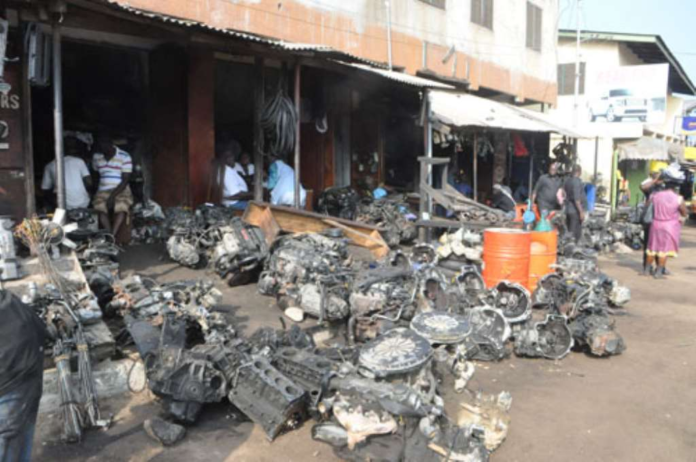The Ghana Union of Traders Association (GUTA) has thrown its support behind spare parts dealers at Abossey Okai in Accra, who have directed foreign nationals operating in the area to vacate their shops by Wednesday, September 10, or face forceful eviction.
The move, backed by a sensitisation exercise on Monday, is intended to protect Ghanaian traders from what GUTA describes as unfair competition.
Speaking on News Desk, Head of the Business and Economic Bureau at GUTA, Charles Kusi Appiah-Kubi, defended the action as lawful and in the country’s best interest.
“There is no ambiguity in what we are doing. We are clear that this is for Ghana. The time has come to rise to the occasion and reduce the rate at which local businesses are collapsing,” he said.
While acknowledging the importance of foreign investment to Ghana’s economy, Mr. Appiah-Kubi argued that some foreigners operating in the retail sector are violating the law and undermining local businesses.
“Yes, we need foreign investors as a country, but not at the expense of local businesses. In other sectors, foreigners might register with the GIPC as sole traders, which is allowed by law. But when they enter the market in ways that subvert trade, that becomes a problem,” he explained.
Meanwhile, the Ghana Investment Promotion Centre (GIPC) has urged restraint, cautioning that shutting down foreign-owned shops should not be the immediate response.
“Closing shops is not the right first step. More consultations, awareness, and education on areas reserved for Ghanaians are needed,” said GIPC CEO Simon Madjie.
Mr. Madjie highlighted that the law reserves certain retail activities exclusively for Ghanaian citizens, including market trading, operating stalls, and hawking. He also noted that GIPC has engaged with GUTA executives and visited the market to address the concerns.
“The market is managed by the district assemblies, which, along with the district security committee, are best positioned to determine who can operate and how the process can be managed,” he added.
The situation underscores the ongoing tension between protecting local traders and maintaining a welcoming environment for foreign investors in Ghana’s retail sector.
Source: Adobea Asare



